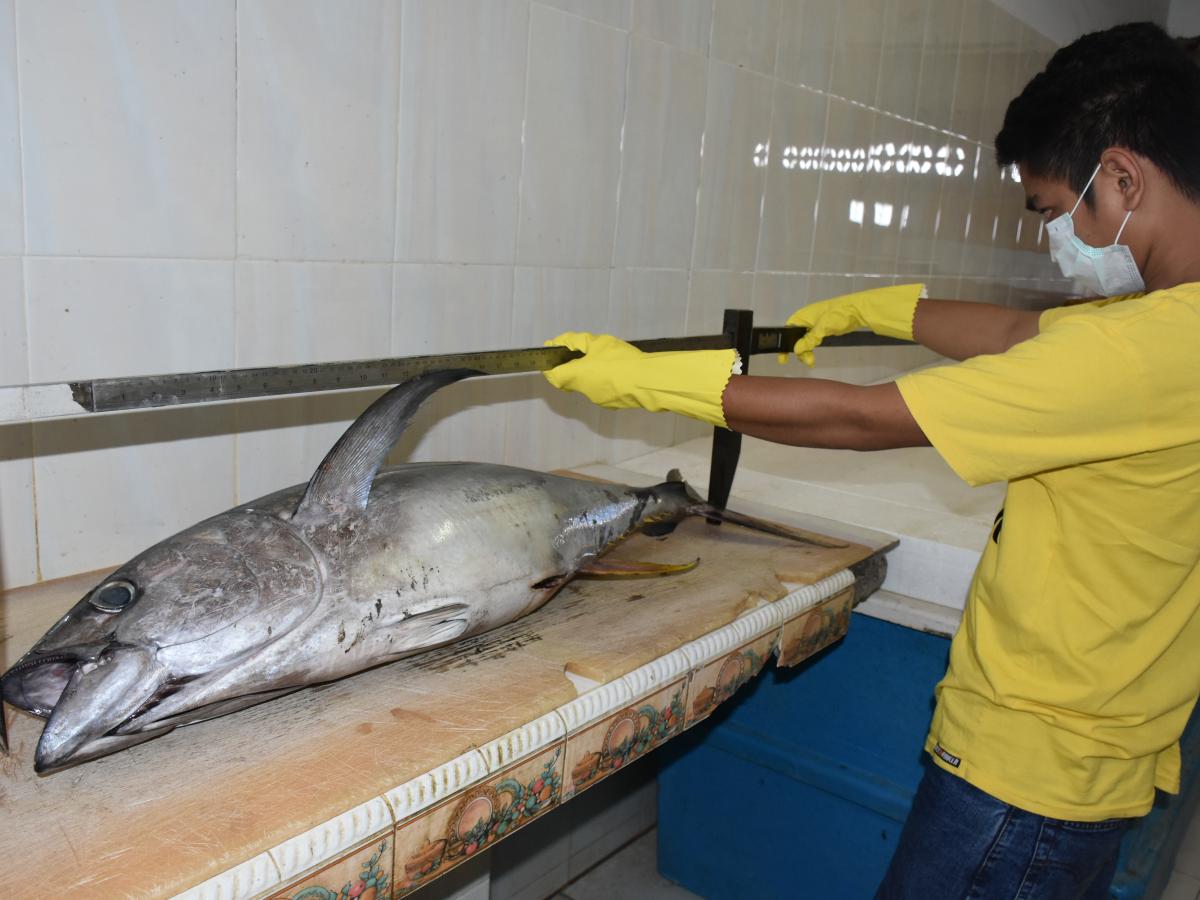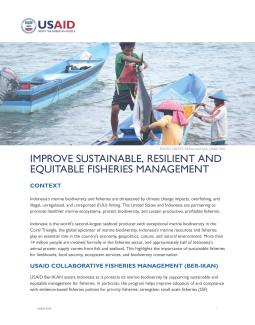Context
Indonesia’s marine biodiversity and fisheries are threatened by climate change impacts, overfishing, and illegal, unregulated, and unreported (IUU) fishing. The United States and Indonesia are partnering to promote healthier marine ecosystems, protect biodiversity, and sustain productive, profitable fisheries.
Indonesia is the world's second-largest seafood producer with exceptional marine biodiversity in the Coral Triangle, the global epicenter of marine biodiversity. Indonesia’s marine resources and fisheries play an essential role in the country’s economy, geopolitics, culture, and natural environment. More than 14 million people are involved formally in the fisheries sector, and approximately half of Indonesia's animal protein supply comes from fish and seafood. This highlights the importance of sustainable fisheries for livelihoods, food security, ecosystem services, and biodiversity conservation.
USAID Collaborative Fisheries Management (Ber-IKAN)
USAID Ber-IKAN assists Indonesia as it protects its marine biodiversity by supporting sustainable and equitable management for fisheries. In particular, the program helps improve adoption of and compliance with evidence-based fisheries policies for priority fisheries; strengthen small-scale fisheries (SSF) governance; increase government and market-based incentives for sustainable seafood products; and improve protection of endangered, threatened, and protected marine species affected by fishing practices.
USAID Ber-IKAN will help improve fisheries management by applying an ecosystem approach to fisheries management. The process will guide the co-design, implementation, and adaptation of partnership-based and market-driven incentives for sustainable fisheries management. USAID Ber-IKAN will promote investments that expand market access and strengthen the livelihoods of SSF and fishing communities, especially those representing women, youth, indigenous people, and minority groups.
Priority Fisheries and Geographic Locations
USAID Ber-IKAN works in eight provinces under two fisheries management areas (Wilayah Pengelolaan Perikanan Negara Republik Indonesia/WPPNRI), strengthening sustainable management of tuna, snapper/grouper, blue swimming crab, and small pelagic fish:
- WPPNRI 711: Riau Islands and West Kalimantan as focus provinces
- WPPNRI 715: North Sulawesi, Gorontalo, Central Sulawesi, North Maluku, Maluku, and West Papua/South West Papua
Anticipated Results
- At least five million hectares of biologically significant areas of priority fisheries under improved fisheries resource management and climate change resilience;
- At least five target fisheries sustainably managed through the implementation of management strategies; and,
- Five thousand people with increased economic benefits from the improved target fisheries.
Contact
Celly Catharina, USAID at ccatharina@usaid.gov


